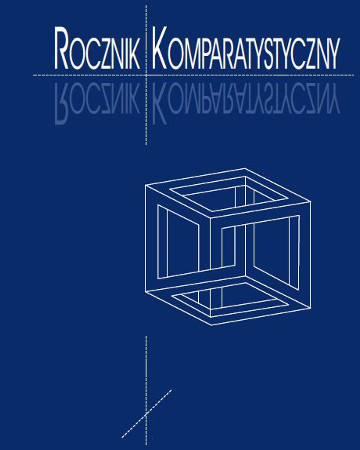





| Authors: |
Roger D.
Sell
Åbo Akademi University |
| Keywords: | comparative literature William Wordsworth Salman Rushdie John Beaumont Polish literature literary communities literary communication post-postmodernity postmodernity modernity |
| Data publikacji całości: | 2015 |
| Page range: | 22 (47-68) |
| 1. | Appiah, Kwame Anthony. “Identity, Authenticity, Survival: Multicultural Societies and Social Reproduction.” Multiculturalism: Examining the Politics of Recognition. Ed. Amy Gutman. Princeton: Princeton University Press, 1994. 149–163. |
| 2. | Auerbach, Erich. “Philology and Weltliteratur.” The Centennial Review 13 (1969 [1952]): 1–17. |
| 3. | Beaumont, Sir John. The Shorter Poems of Sir John Beaumont: A Critical Edition with an Introduction and Commentary. Ed. Roger. D. Sell. [= Acta Academiae Aboensis, ser. A, vol. 49.]. Åbo: Åbo Akademi Press, 1974. |
| 4. | Bhabha, Homi. The Location of Culture. London: Routledge, 1994. |
| 5. | [Bridges, Robert]. The Spirit of Man: An Anthology in English & French From the Philosophers & Poets made by the Poet Laureate & Dedicated by Gracious Permission to His Majesty The King. Longmans Green, London, 1915. |
| 6. | Chandra, Sarika. “Reproducing a Nationalist Literature in the Age of Globalization: Reading (Im)migration in Julia Alvarez’s How the García Girls Lost Their Accents.” American Quarterly 60 (2008): 829–885. |
| 7. | Damrosch, David. “World Literature in a Postcanonical, Hypercanonical Age.” Comparative Literature in an Age of Globalization. Ed. Haun Saussy. Baltimore: Johns Hopkins University Press, 2004. 43–53. |
| 8. | Farrell, James Gordon. The Siege of Krishnapur. Harmondsworth: Penguin, 1975 [1973]. |
| 9. | Grabovsky, Ernst. “The Impact of Globalization and the New Media on the Notion of World Literature.” Comparative Literature and Comparative Cultural Studies. Ed. Steve Tötösy Zepetnek. West Lafayette: Purdue University Press, 2004. 45–57. |
| 10. | Habermas, Jürgen. “Struggles for Recognition in the Democratic Constitutional State.” Multiculturalism: Examining the Politics of Recognition. Ed. Amy Gutman. Princeton: Princeton University Press, 1994. 107–148. |
| 11. | Hampshire, Stuart. Innocence and Experience. Harmondsworth: Penguin, 1992. |
| 12. | Hayley, Alex. Roots. London: Hutchinson, 1977. |
| 13. | Keats, John. Letters of John Keats. Ed. Frederick Page. London: Oxford University Press, 1954 [1817, 1818]. |
| 14. | Lindley, David, ed. The Tempest [New Cambridge Shakespeare Edition]. Cambridge: Cambridge University Press, 2002. |
| 15. | Lopéz, Silvia. “National Culture, Globalization and the Case of Post-War El Salvador.” Comparative Literature Studies 41 (2004): 80–100. |
| 16. | Lyotard, Jean-Francois. The Postmodern Condition: A Report on Knowledge. Manchester: Manchester University Press, 1984 [1979]. |
| 17. | Miller, J. Hillis. “The University of Dissensus.” Oxford Literary Review 17 (1995): 121–43. |
| 18. | ---. “A Defense of Literature and Literary Study in a time of Globalization and the New Tele-technologies.” Neohelicon 34 (2007): 13–22. |
| 19. | Piterse, Jan Lederveen. ”Globalization as Hybridization.” Global Modernities. Ed. Mike Featherstone, Scott Lash and Roland Robertson. London: Sage, 1995. 45–68. |
| 20. | Pizer, John. “Goethe’s ‘World Literature’ Paradigm and Contemporary Globalization.” Comparative Literature 52 (2000): 213–227. |
| 21. | Rushdie, Salman. Shalimar the Clown. London: Vintage, 2005. |
| 22. | Saussure, Ferdinand de. Course in General Linguistics. London: Fontana, 1978 [1916]. |
| 23. | Sell, Roger D. Literature as Communication: The Foundations of Mediating Criticism. Amsterdam: John Benjamins, 2000. |
| 24. | ---. Mediating Criticism: Literary Education Humanized. Amsterdam: John Benjamins, 2001. |
| 25. | ---, ed. Children’s Literature as Communication: The ChiLPA Project. Amsterdam: John Benjamins, 2002. |
| 26. | ---. Communicational Criticism: Studies in Literature as Dialogue. Amsterdam: John Benjamins, 2011. |
| 27. | ---. “Dialogue versus Silencing: Coleridge’s The Rime of the Ancient Mariner.” Literary Community-Making: The Dialogicality of English Texts from the Seventeenth Century to the Present. Roger D. Sell. Amsterdam: John Benjamins, 2012. 91–129. |
| 28. | ---.“Herbert’s Considerateness: A Communicational Assessment.” The Ethics of Literary Communication: Genuineness, Directness, Indirectness. Roger D. Sell, Adam Borch and Inna Lindgren. Amsterdam: John Benjamins, 2013. 21–28. |
| 29. | ---, ed. Literature as Dialogue: Invitations Offered and Negotiated. Amsterdam: John Benjamins, 2014. |
| 30. | ---, Adam Borch, and Inna Lindgren, eds. The Ethics of Literary Communication: Genuineness, Directness, Indirectness. Amsterdam: John Benjamins, 2013. |
| 31. | Taylor, Charles. “The Politics of Recognition.” Multiculturalism: Examining the Politics of Recognition. Ed. Amy Gutman. Princeton: Princeton University Press, 1994. 25–73. |
| 32. | Wordsworth, William. The Prelude, 1799, 1805, 1850. Eds. Jonathan Wordsworth, M.H. Abrams, and Stephen Gill. New York: Norton, 1970. |
| 33. | ---. The Prose Works of William Wordsworth. 3 vols. Eds. W.J.B. Owen, and Jane Worthington Smyser. Oxford: Clarendon Press, 1974. |